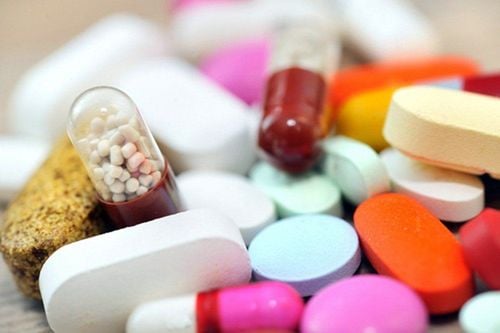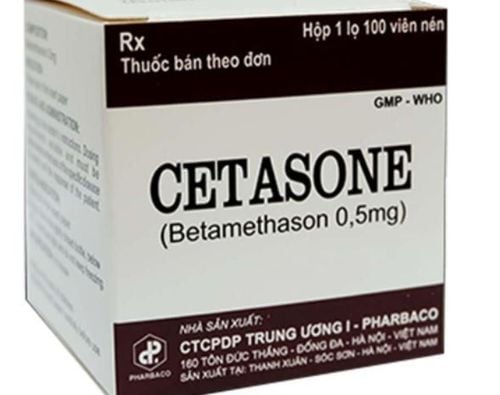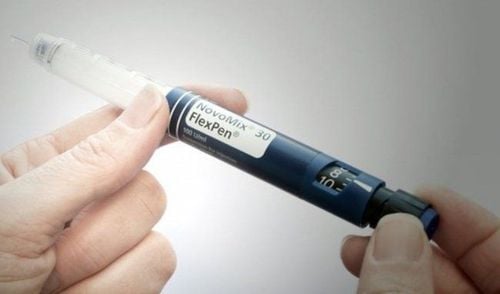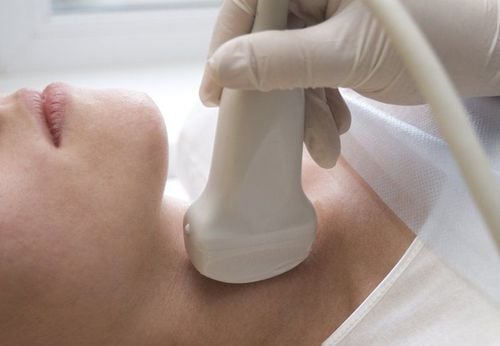This is an automatically translated article.
The article was professionally consulted by a General Internal Medicine Doctor - Department of Examination & Internal Medicine - Vinmec Nha Trang International General Hospital.Insulin resistance means your body doesn't respond properly to the insulin it makes, which, over time, leads to a spike in blood sugar. If this condition persists, it will make you more likely to develop type 2 diabetes, but not necessarily insulin resistance will lead to these diseases. Exercise and a good diet will help you reduce your risk of disease.
1. What is insulin resistance?
Insulin resistance is when cells in muscle, fat, and liver fail to respond, or the cells themselves fight off hyperinsulinemia and are unable to use glucose from the blood for energy. When it sees an increase in the amount of glucose in the blood because it's not being used by the cells, the pancreas makes even more insulin.Insulin resistance syndrome or metabolic syndrome includes a group of problems such as obesity, high blood pressure, high cholesterol and type 2 diabetes.
2. Symptoms of insulin resistance
Patients cannot self-diagnose insulin resistance because this condition requires blood tests to detect it. In addition, the symptoms of this condition can make people think it is insulin resistance such as high blood pressure, low levels of good cholesterol, and high triglycerides.Some signs of insulin resistance include:
A waist circumference over 102cm for men and 90cm for women Blood pressure readings of 130/80 mmHg or higher Fasting glucose levels over 100 mg/dL Fasting triglyceride levels at fasting above 150 mg/dL HDL cholesterol levels less than 40 mg/dL in men and 50 mg/dL in women Skin tags Dark, smooth patches of skin called acanthosis nigricans .
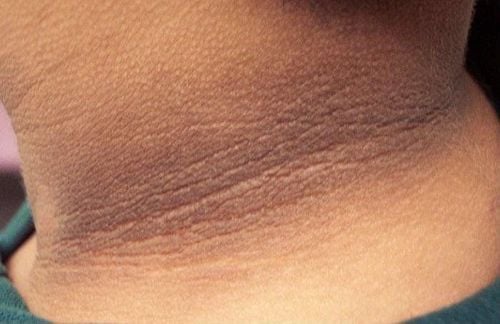
Hình ảnh bệnh gai đen (acanthosis nigricans)
3. Risk factors for insulin resistance
The following factors can cause you to increase insulin resistance include:Obesity, especially belly fat Inactive lifestyle Diet high in carbohydrates Gestational diabetes Having nonalcoholic fatty liver disease Having ovarian syndrome PCOS acromegaly Using medications such as steroids, antipsychotics, and HIV medications Having sleep problems such as sleep apnea
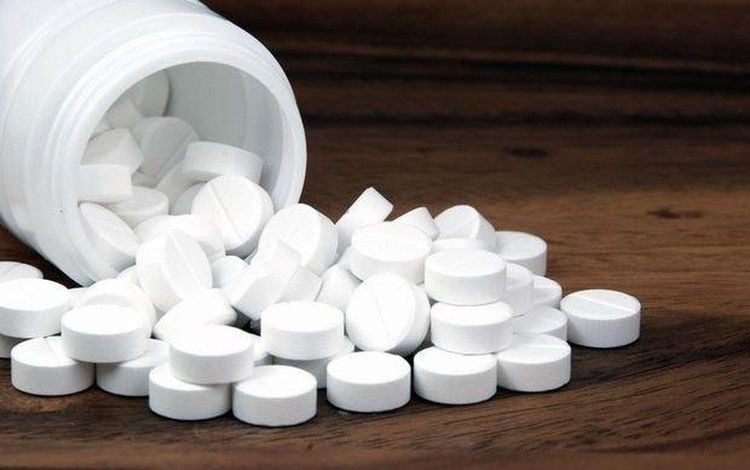
Sử dụng một số loại thuốc gây nguy cơ gây kháng insulin
4. Diagnosis
To diagnose insulin resistance, your doctor will ask about your current symptoms, your medical history, and your family's medical history. Next is to check height, weight and blood pressure. To confirm the diagnosis, the doctor will order additional blood tests as follows:Fasting plasma glucose test. This test measures your blood sugar at least 8 hours after your last meal. Oral glucose tolerance test. First, you will do a fasting plasma glucose test. Then you will drink glucose equivalent to 75g glucose, dissolved in 250-300ml water, drink for 5 minutes. Two hours later, retest plasma glucose. HbA1c test. This blood test shows your average blood sugar over the past 2 to 3 months. Doctors use this test to diagnose prediabetes or diabetes.
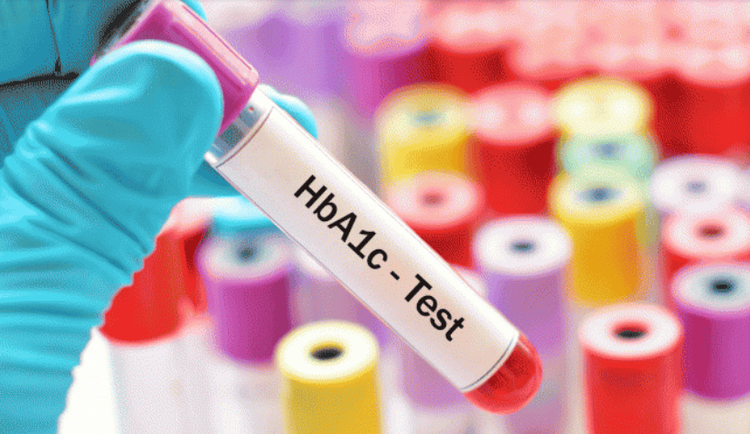
Xét nghiệm HbA1c chẩn đoán bệnh
5. How insulin resistance progresses to type 2 diabetes
When there is insulin resistance, your pancreas makes more insulin to compensate, which, in a short time, returns your blood sugar to normal.However, over time, the pancreas can't ramp up production to compensate for the insulin needed to get glucose into the cells. If you don't change the way you eat and exercise, your blood sugar will rise until you have prediabetes. The blood test results will then show:
Fasting plasma glucose test: 100-125 Oral glucose tolerance test: 140-199 after second test HbA1c result 5.7% to 6.4% If you cannot control your prediabetes, it will lead to type 2 diabetes with the following laboratory indicators:
Fasting plasma glucose test: 126 or higher Tolerance test oral glucose : 200 or higher after second test HbA1c result 6.5% or higher
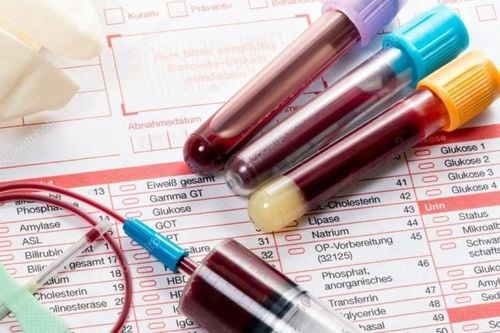
Kết quả xét nghiệm cho biết tình trạng sức khỏe
6. Treatment and prevention of insulin resistance
You can take the following steps to reverse insulin resistance and prevent type 2 diabetes:Exercise. Walk for at least 30 minutes a day and 5 or more days a week. Reach the right weight. If you are not sure what weight is right for you or how to achieve your weight loss goals, consult your doctor before implementing this plan. Eat a healthy diet of fruits, vegetables, whole grains, nuts, beans, fish, legumes and lean proteins. Take medicines. Your doctor may prescribe a medicine called metformin (Fortamet, Glucophage, Glumetza, Riomet) to control blood sugar.

Định kỳ kiểm tra sức khỏe giúp bạn phát hiện sớm bệnh lý
7. Complications of insulin resistance
If metabolic syndrome is left untreated, it can lead to:High blood sugar Low blood sugar Heart attack Stroke Kidney disease Eye problems Cancer Alzheimer's Disease Vinmec International General Hospital is rolling out a Screening Package Cardiovascular and diabetes screening under the implementation of a team of highly qualified and experienced doctors and the support of modern technological equipment, will help give the most accurate diabetes test results, from that suggest an appropriate treatment regimen.
Customers can directly go to Vinmec Health system nationwide to visit or contact the hotline here for support.
Reference article source: webmd.com
Please dial HOTLINE for more information or register for an appointment HERE. Download MyVinmec app to make appointments faster and to manage your bookings easily.





